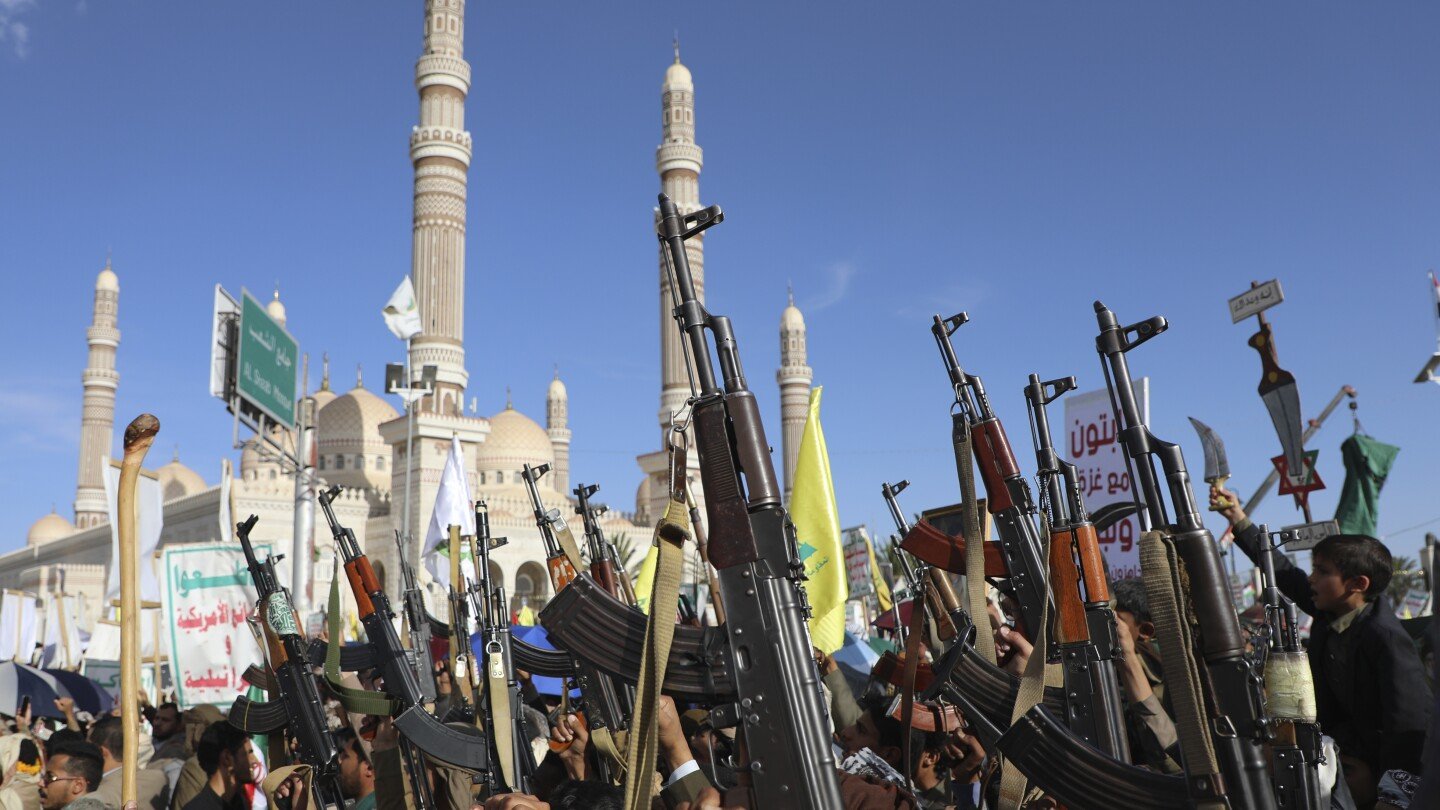UNITED NATIONS (AFP) – Yemen’s Houthi rebels have transformed from a local armed group with limited capabilities into a powerful military organization with support from Iran, Iraqi armed groups, Lebanese Hezbollah militants and others, United Nations experts said in a new report.
Experts monitoring sanctions against the Houthis said in their report that the Iran-backed Houthis took advantage of the war between Israel and Hamas in Gaza and worked to strengthen their position in Iran’s self-described “axis of resistance” to gain popularity in the region and beyond. – Page of the report submitted to the United Nations Security Council.
To support Iranian-backed Hamas fighters, whose surprise attacks in southern Israel on October 7, 2023, ignited the war in Gaza, the Houthis attacked ships in the Red Sea and Gulf of Aden, disrupting global shipping in a major geopolitical issue. region.
Despite Houthi claims that they would target ships linked to Israel, the committee said its investigations revealed that the rebels were targeting ships indiscriminately.
Its analysis of IMO, US and UK data revealed that at least 134 attacks were carried out from Houthi-controlled areas against US and British merchant and commercial ships and warships in the Red Sea and Gulf of Aden between 2011 and 2019. November 15, 2023, and July 31, 2024.
The United Nations experts said: “The group’s shift to operating at sea has increased its influence in the region.” “Such a scale of attacks using weapons systems on civilian ships has not occurred since World War II.”
Experts said that the Houthis used a new, previously undisclosed ballistic missile, “Hatem-2”, in their attacks.
The five-member UN panel includes experts on arms, finance, regional affairs, international humanitarian law and armed groups. The experts come from India, Egypt, Switzerland, Belgium and Cabo Verde. Confidential sources told the committee that the Houthis are coordinating operations with Al-Qaeda in the Arabian Peninsula and strengthening relations with the Al-Shabaab armed movement linked to Al-Qaeda in Somalia.
The Houthis have been waging a civil war with the internationally recognized Yemeni government, which is supported by a Saudi-led coalition, since 2014, when they took control of the capital, Sanaa, and most of the northern regions. Hopes for peace talks to end the war faded after the attacks of October 7, 2023.
UN experts said that the Yemeni conflict, which began as an internal conflict and expanded into a regional confrontation, “has now escalated into a major international crisis.”
According to experts, the number of Houthi fighters is now estimated at about 350,000, compared to 220,000 in 2022, and 30,000 in 2015.
The report said: “The committee noted the transformation of the Houthis from a local armed group with limited capabilities into a powerful military organization, working to expand its operational capabilities beyond the territories under its control.”
Experts said that this transformation was made possible due to the transfer of military equipment and training provided by the Quds Force of the Iranian Revolutionary Guard, Hezbollah, and Iraqi specialists and technicians.
Military experts, Yemeni officials, and even officials close to the Houthis noted that the rebel group was unable to produce complex weapons systems such as the ballistic missiles, cruise missiles, surveillance and attack drones, portable air defense systems, and thermal sights they used. UN experts said this was without foreign support.
The experts said: “The scale, nature and extent of various transfers of military equipment and technology provided to the Houthis from external sources, including financial support and training of their fighters, is unprecedented.”
The committee said it noted similarities between the multiple military elements used by the Houthis and those produced and managed by Iran or its allies in the axis of resistance, which includes Hezbollah, Hamas, and armed groups in Iraq and Syria.
She said that joint operations centers had been established in Iraq and Lebanon with Houthi representatives “with the aim of coordinating the joint military actions of the axis of resistance.”
Inside Yemen, the committee said that the Houthis are intensifying their military operations against the government. He added, “The internal military situation is fragile, and any internal or external movement may lead to the resumption of military confrontations.”
She added that the Houthis are also recruiting large numbers of Yemeni youth and children in addition to exploiting Ethiopian migrants and forcing them to join the fight against the government and engage in drug smuggling.
“They are exploiting high illiteracy rates, especially in tribal areas, and are said to have mobilized boys as young as 10 or 11, despite often opposition from parents,” they said. “Recruitment sermons and weekly lessons on jihad are said to be offered in schools.”
Experts said that child recruitment increased after the start of the war in Gaza and the US and British air strikes in Yemen. The Yemeni government said it received 3,298 reports of child recruitment in the first half of 2024, with young men reportedly being used as human shields, spies, and in combat – to plant landmines and explosives, as reconnaissance officers, and as cooks.











